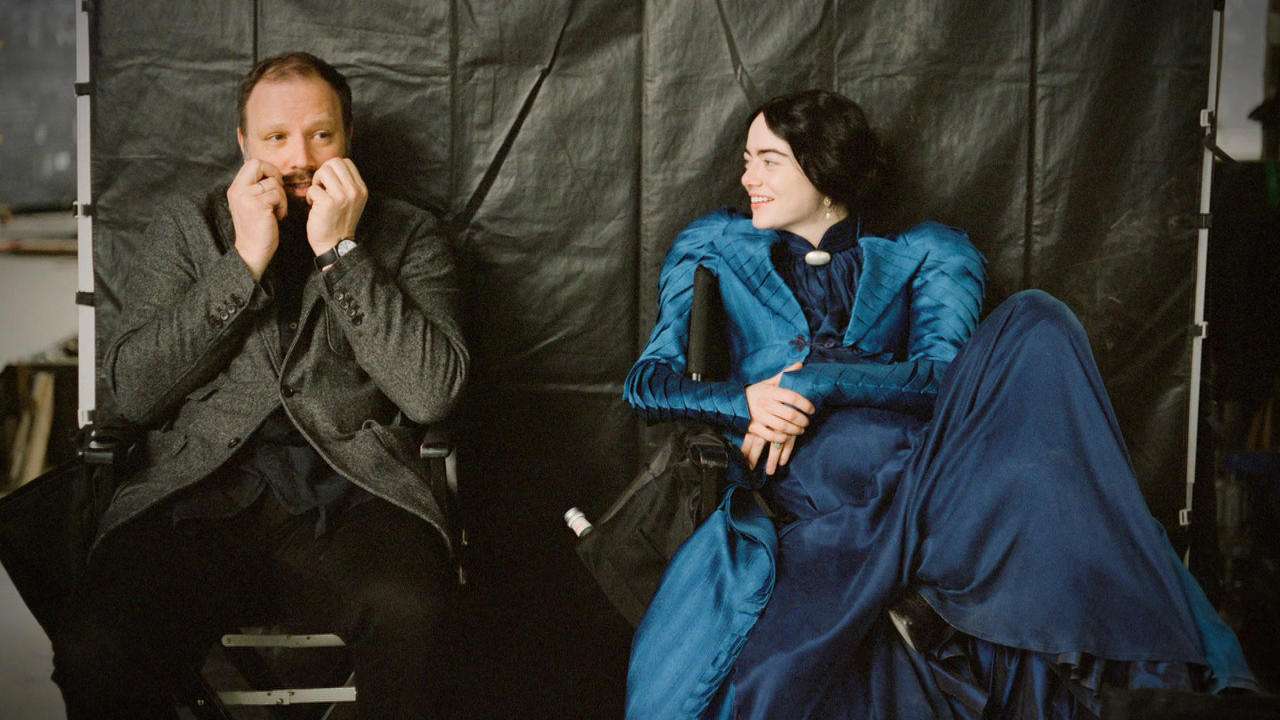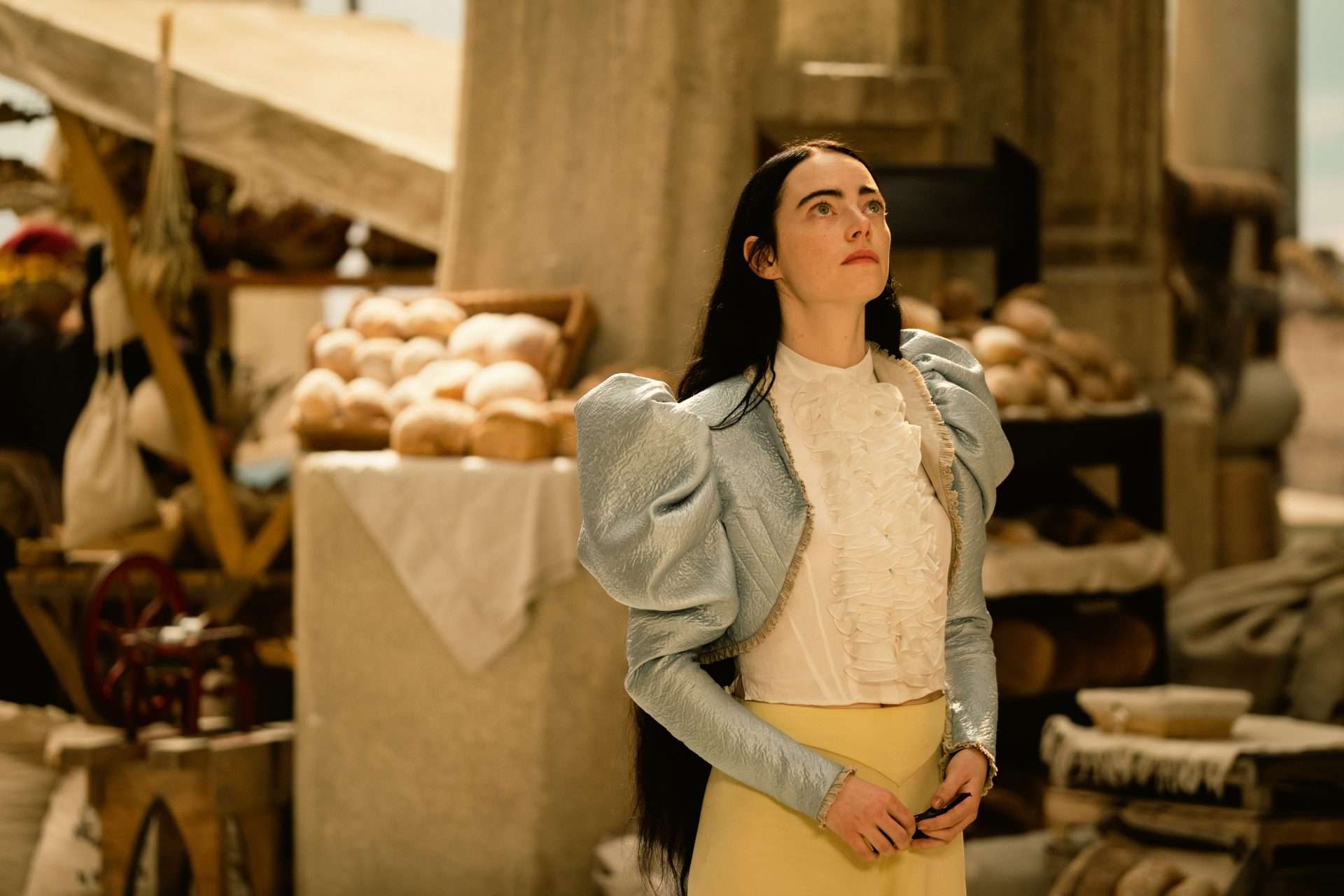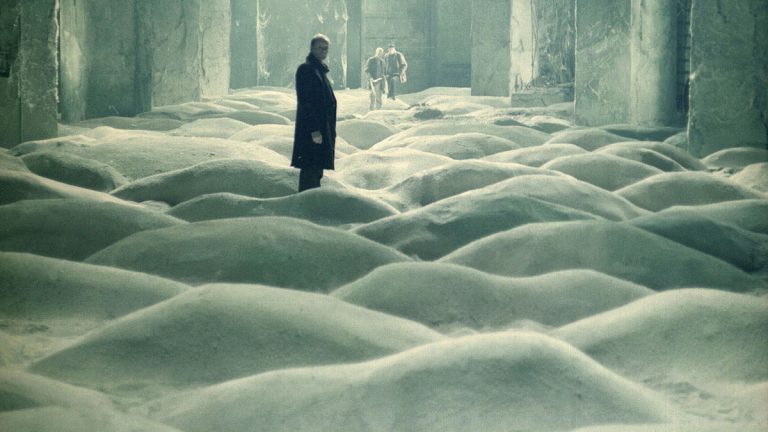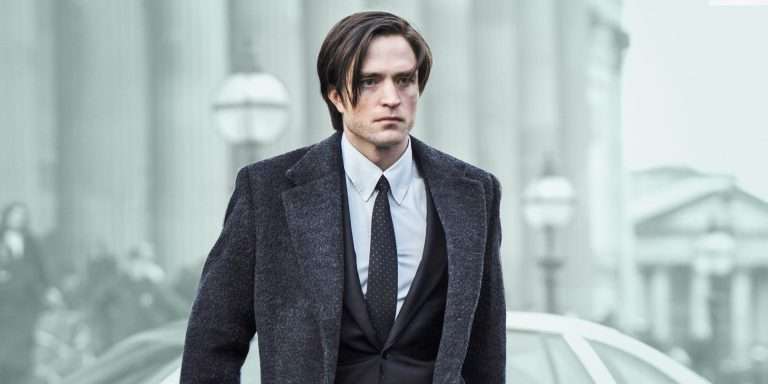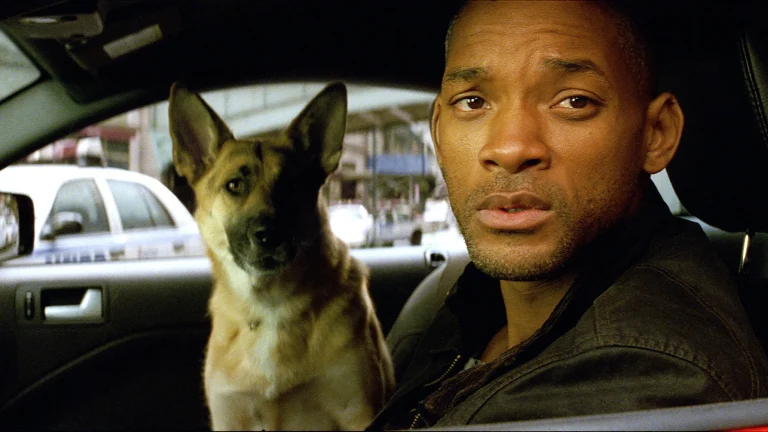Best Benicio del Toro Performances: Few actors’ screen presence reverberates with such genuine intensity as Benicio del Toro. Like Gary Oldman, Denzel Washington, Toshiro Mifune, Mads Mikkelsen, and so on. I feel Benecio del Toro is almost always good, irrespective of the quality of the film built around his character. Born in Puerto Rico on February 19, 1967, to lawyer parents, Benicio del Toro was a basketball player in school. Benicio del Toro was studying business at the University of California, but his interest in acting soon made him drop out and study acting at the Stella Adler Conservatory with Arthur Mendoza. In the late 1980s, Benicio del Toro started appearing in TV shows like Miami Vice and Private Eye.
Benecio del Toro was recognized as a promising performer in his second movie role, where he played Dario, a vicious enforcer of a drug kingpin in Timothy Dalton’s James Bond movie License to Kill (1989). Though the actor was often typecast as an evil henchman, his laconic figure with a vainglorious attitude instills something uniquely sinister to the dark characters. In the 1990s, Benicio del Toro flourished in movies with an ensemble cast, often stealing the spotlight from the high-billed actors. The Usual Suspects (1995), The Funeral (1996), and Basquiat (1996) are some of the prime examples of the actor making the best out of his limited screen time.
Read More: The 15 Best Steven Soderbergh Movies, Ranked
From the early 2000s, Benicio del Toro was offered meaty roles, and he instantly garnered widespread acclaim, starting with his Oscar-winning role in Steven Soderbergh’s Traffic (2000). Del Toro’s second collaboration with Soderbergh allowed the actor to bestow upon us a tour de force performance as the Argentine revolutionary Che. The unshowy biopic neither won awards nor was a commercial hit. Yet this deeply internalized performance shows that his charisma and gifts don’t always have to be deployed to play ruthless hitmen. Of course, the actor later displayed that he can be less flamboyant and more nuanced even while playing an enforcer (in Sicario). Benicio del Toro has also been part of franchise films like Star Wars and MCU.
Benicio del Toro has worked with some extraordinary filmmakers, including Peter Weir, Terry Gilliam, William Friedkin, Oliver Stone, Steven Soderbergh, Alejandro Gonzalez Inarrittu, Denis Villeneuve, Wes Anderson, and Paul Thomas Anderson (though a frustratingly inadequate role in Inherent Vice). I wish he was a bigger star and that he gained more leading roles that perfectly put his swagger and skills to use. Nevertheless, Benicio del Toro has already gifted us plenty of rich performances and hopefully will provide us with more great ones. Now, let’s explore ten of Benicio del Toro’s best performances. The list doesn’t include films like The Usual Suspects, Snatch, and Sin City, where only the actor’s distinct mannerisms and screen presence made the characters memorable, which are otherwise ‘nothing’ roles. Instead, I feel it’s better to focus on his phenomenal performances in the relatively underrated or underseen films.
Honorable Mentions:
Jimmy P. (2013)

French filmmaker Arnaud Desplechin’s English film Jimmy P is based on the accounts of psychoanalyst George Devereux’s therapy sessions with a Native American WWII veteran plagued by unexplainable headaches and dizzying spells. Mathieu Amalric plays the maverick ethnologist and unorthodox psychoanalyst Georges. Benicio del Toro earnestly embodies Jimmy Picard, a Blackfoot Native American whose neuroses and traumas are the crux of the narrative. Jimmy P is set mainly in the Menninger Clinic in Topeka, Kansas, at a time when even the medical community is casually xenophobic. Georges, a student of Freud and a man with an extraordinary interest in Native American culture, is considered the perfect choice by the Caucasian staff to identify Jimmy’s malady.
Georges’ professional relationship with Jimmy and their mutual respect for each other are effectively portrayed by the two actors with wildly contrasting acting styles. Del Toro offers a low-key, affectless performance that gradually paints the psychologically complex portrait of Jimmy. The ponderous, verbalized details of Jimmy’s past and dreams and a too-clinical approach do bog down the narrative. Yet despite the lackluster filmmaking, Del Toro and Amalric’s performances make it a fairly engaging account of psychotherapy. P.S. Lily Gladstone has a blink-and-miss cameo in the film, which is also her first movie appearance.
The Way of the Gun (2000)

Christopher McQuarrie, the Oscar-winning writer of The Usual Suspects and known for his collaborations with Tom Cruise (Jack Reacher and Mission Impossible movies), made his directorial debut with the crime drama The Way of the Gun. The film revolves around small-time criminals Parker (Ryan Philippe) and Longbaugh (Benicio del Toro) – the real last names of Butch Cassidy and Sundance Kid – who kidnap a pregnant surrogate mother, Robin (Juliette Lewis) and demand ransom from the father, a fixer for the mob. As expected, plans go awry. Betrayals and bloodshed are unavoidable consequences when a large sum of money is involved.
The Way of the Gun suffers from an overwrought narrative that tries too much to be a Tarantino and Peckinpah-esque movie. It’s definitely a very ambitious film with some sharp dialogues (and an excellent final gunplay). Yet the array of unsympathetic characters and elaborate subplots fails to retain our interest. However, the one uniformly good aspect of the narrative is the performances, particularly from James Caan and Benicio del Toro. The scene between Caan’s weary bagman and del Toro’s plucky desperado is a reason enough to watch the film. It’s one of the rare occasions where del Toro’s rugged charm is effortlessly matched by another extraordinary actor of his caliber.
10. No Sudden Move (2021)

Seeing Benicio del Toro play a lead or co-lead is always pleasing. The actor’s looming screen presence made even the unwieldy Reptile (by Grant Singer) watchable. It only sounds more exciting when del Toro reunites with his best collaborator, Steven Soderbergh. No Sudden Move, set in 1950s Detroit, revolves around two small-time criminals who get mixed up in a high-stakes heist involving corporate sharks. Don Cheadle plays the street-smart criminal Curtis Goynes. He gets hired by the mysterious Doug Jones (Brendan Fraser) for a job that sounds too simple and easy to be true. The other players hired for the job are the benumbed racist Ronald Russo (Benicio del Toro) and the flamboyant Charley (Kieran Culkin).
What follows is an old-school noir with byzantine plot details as Curt and Ronald come together to gain a sense of freedom and sophistication despite their shared resentment for each other. Cheadle and del Toro’s incredibly nuanced performances further elevate the extraordinary amount of subtle information that establishes these central characters. As a WWII veteran with an alcohol problem, Ronald’s inflated sense of self leads to funny and terrifying moments. Though we root for Cheadle’s Curtis, del Toro’s ability to bring out his character’s inner demons with pointed gestures definitely haunts us. At times, No Sudden Move is too serious and intricate for its own good. Yet, the outstanding ensemble cast (including David Harbour, Jon Hamm, and Amy Seimetz) and a surprising cameo keep us hooked.
9. Fear and Loathing in Las Vegas (1998)

Unfilmable books certainly need unconventional filmmakers. Terry Gilliam, despite his streak of uncontrollable self-indulgence, is undoubtedly the right auteur to capture the drug-addled decadence of Hunter S. Thompson’s 1971 book. Gilliam also finds the perfect performers to emulate the maddeningly anarchic spirit of the central rabble-rousers: Johnny Depp as journalist Raoul Duke, Thompson’s alter ego, and Benicio del Toro as Duke’s animalistic attorney, Dr. Gonzo. These are cartoonish characters navigating their way through the chaos left by the peace-and-love generation of the 1960s. Duke and Dr. Gonzo are the embodiment of the sixties hangover. When they are not lying wasted in trashed hotel rooms, they are intimidating and harassing ordinary folks.
In a film where the plot is irrelevant, and there’s too much of a weird thing, even eccentricity can feel a bit one-note. Yet, Depp and Benicio del Toro play these beastly, paranoia-afflicted characters with a compelling intensity. From an early scene where the duo terrorizes a nervous hitchhiker (a hilarious cameo by Toby Maguire) to the wild bathtub scene and Gonzo’s menacing behavior at a back-alley diner (featuring a memorable Ellen Barkin cameo), Benicio del Toro offers a fantastic physical performance. The sinister edge to Gonzo’s character truly disturbs us more than Duke’s shenanigans.
To play the slobbish and unpredictable Gonzo, Benicio del Toro put on a lot of weight within eight weeks. The actor has mentioned that the film nearly wrecked his career. The performance felt so authentic that the Hollywood film fraternity thought del Toro had an alcohol and drug problem. Thankfully, the actor made a strong comeback with a widely recognized role in Steven Soderbergh’s Traffic.
Related to Best Benicio del Toro Performances: 10 Best Johnny Depp Movie Performances
8. Things We Lost in the Fire (2007)

If you feel a bit frustrated that Benicio del Toro’s brand of charm is often used to portray hardened criminal characters, then Things We Lost in the Fire shows that the 6 feet 2 inches actor can play a benevolent father figure and romantic lead with an equal amount of credibility. In Danish filmmaker Susanne Bier’s English language debut, Halle Berry plays Audrey Burke, who has a hard time processing her grief after suddenly losing her beloved husband, Brian (David Duchovny). Del Toro’s Jerry is a lawyer-turned-heroin-addict who was Brian’s best friend since childhood. After Brian’s death, Audrey tries to help with Jerry’s addiction recovery. However, when Jerry moves to the remodeled garage in Audrey’s household, it brings a set of issues that adversely impact the troubled individuals’ lives.
Things We Lost in the Fire is less of a manipulative Hollywood weepie, though the narrative meanders a bit in the middle portions. Nevertheless, del Toro’s wounded eyes and Berry’s despair-ridden gazes replace the blandness with a compelling emotional intimacy. Del Toro’s character doesn’t have a backstory. Yet the compassion and sensibility with which he interacts with Brian’s kids – Harper and Dory – provides a glimpse of Jerry’s interiority before the addiction consumed him. Moreover, Del Toro’s Jerry brilliantly expresses his confusion as the grieving Audrey is alternately empathetic and wrathful towards him.
7. Escobar: Paradise Lost (2014)

Actor Andrea Di Stefano’s directorial debut tells a heavily dramatized tale of the feared Colombian drug lord through the perspective of a white tourist’s fictional romance. Josh Hutcherson plays the incredibly naive Canadian, Nick, who, along with his brother, tries to establish a surfing business on the beaches of Medellin. Soon, Nick meets an attractive young native woman, Maria, and gets into a relationship with her. Maria’s beloved uncle is none other than the notorious Pablo Escobar. Writer/director Stefano pitches the narrative as a fable of corrupted innocence as Nick gets caught in the deadly war between the drug cartel and the Colombian government. The problem is Nick’s point of view is filled with predictable and inept drama. But what breathes some life into this film is Benicio del Toro’s towering screen presence as the titular character.
Mr. Del Toro plays Escobar as an icon of evil – a man whose viciousness is gracefully masked by his benevolent father-figure exterior. As usual, the actor uses his physicality to great effect, conveying his character’s deranged nature with subtle gestures. The scene where he casually inquires about Nick’s fidelity to Maria or the moment he speaks about Jungle Book over the phone to Nick, Benicio del Toro’s nuanced expressions send chills down our spine. Del Toro aces even the most extravagant scenes, like when Escobar intimidates the priest. The portrayal of this megalomaniac villain is so perfect that the other aspects of the film feel relatively bland and generic.
6. A Perfect Day (2015)

Set in an unnamed Balkan country during the 1990s Yugoslav wars, A Perfect Day unfolds over a single day, chronicling a group of humanitarian aid workers’ effort to exhume a dead body from a well. A Perfect Day is Spanish filmmaker Fernando Leon de Aranoa’s English language debut with a cast of international actors, including Benicio del Toro, Tim Robbins, Olga Kurylenko, Melanie Thierry, and Sergi Lopez. Del Toro plays Puerto Rican aid worker Mambru, the group’s head of security, and has experienced a lot during his long years of service. He thinks of returning home and settling down, unlike the logistics expert, B (Robbins), who doesn’t seem to have much of a life outside the war zone.
The group is tasked with the simple chore of fetching a rope, but it takes them on tense detours that showcase the suffering of ordinary people in war zones. Nevertheless, the crucial strength of the film is its character-driven comedy. Del Toro has, time and again, proven that he can do comedy as much as he can menace us with his side-eye glares. Most recently, del Toro’s deadpan dialogue delivery in Wes Anderson’s The French Dispatch remained the funniest among the filmmaker’s ensemble of eccentric characters. In A Perfect Day, del Toro’s jaded aid worker shares hilarious chemistry with Robbins’ oddball-esque B. The actor also effortlessly delivers poignant moments, especially when Mambru looks out for a displaced local boy.
5. 21 Grams (2003)

In Alejandro Gonzalez Inarittu’s non-linear hyperlink drama, del Toro’s character, Jack Jordan, points to his head and says, “This is hell. Right here.” You’d really feel this heavily tattooed, world-weary man’s crisis of faith in that harrowing moment. 21 Grams’ fragmented narrative revolves around three individuals: Math professor Paul Rivers (Sean Penn), in need of a heart transplant; Christina Peck (Naomi Watts), who has kicked her drug habit and adjusted herself to the peaceful suburban existence with the architect husband and two little daughters; and Jack Jordan, a troubled person with felony convictions who has found Jesus, and lives with his supportive wife, Marianne (Melissa Leo).
One evening, Christina loses her family to a hit-and-run accident. The driver is Jack Jordan. Jack drives the pick-up truck he won in a sweepstakes, which he believes is a message from the lord. Christina’s brain-dead husband’s organ donation facilitates Paul’s heart transplantation. The puzzle-piece script structure (written by Guillermo Arriaga) offers us a raw portrait of grief, guilt, and despair. Each of the three central characters’ anguish feels too palpable and distressing. Although 21 Grams boasts an inherently melodramatic plot, the naturalistic performance and the non-linear storytelling make its humanist message resounding.
Del Toro’s Jack is particularly interesting as his brutish nature rears its head now and then despite his efforts to find stability through religious faith. The dining table scene where he acts as the disciplinarian father to his children and the moment where he acknowledges his own transgression to his wife (after the accident) are some of the standout portions of the film. Del Toro ably transforms Jack Jordan into a personification of guilt and pain. He received his second Oscar nomination for the role.
Related to Best Benicio del Toro Performances: All Alejandro González Iñárritu Movies Ranked
4. Escape at Dannemora (2018)

Created by Brett Johnson and Michael Tolkin and directed by Ben Stiller, Escape at Dannemora is a seven-episode Showtime limited series based on two inmates’ jailbreak from New York’s maximum-security prison. The duo were aided by the prison employee Joyce Mitchell, who was sexually entangled with the inmates. Escape at Dannemora is a ‘stranger than fiction’ type of true story powered by the three magnificent central performances of Benicio del Toro, Patricia Arquette, and Paul Dano. The three actors’ commitment to their roles to evoke the multilayered nature of the real characters is commendable.
Del Toro plays the career criminal Richard Matt with his usual swagger and surface charm. Gradually, the actor fills in the details of Matt’s life, making him an ordinary human being as well as a master manipulator. Matt is a gifted painter who yearns for freedom. At the same time, beneath Matt’s recognizable emotions and charisma lies a mindboggling grey area that seems frightening. Matt’s ice-cold detachment and Sweat’s excitable nature bring up fascinating dynamics to the performances of del Toro and Dano. Interestingly, Arquette’s phenomenal performance even dominates del Toro’s (undoubtedly a rarity). Escape at Dannemora is a slow-burn psychological drama that focuses more on the interiority of the morally warped characters rather than making a straightforward thriller on the escape. But the riveting performances make it a compelling watch.
3. Traffic (2000)

Scripted by Stephen Gagan and directed by Steven Soderbergh, Traffic is a brilliant hyperlink drama that offers a levelheaded look at America’s war on drugs. The four interwoven stories largely follows: Robert Wakefield (Michael Douglas), a Conservative Ohio judge appointed by the President to head the National Drug Control; two DEA agents (Don Cheadle & Luis Guzman) who protect an informant in order to testify against a jailed drug baron; Helena (Catherine Zeta-Jones), the drug baron’s wife who tries ruthless tactics to save her husband; and Tijuana police officer, Javier Rodriguez (Benicio del Toro), who witnesses the abysmal depths of the institutionalized corruption.
Gaghan’s script and Soderbergh’s vision eschew sentimentality and rhetoric, and they handle the multifaceted social issue with astounding honesty. The most intense and well-rounded story among the four is del Toro’s conflicted cop, Javier. While he initially does the dirty work for General Salazar and his goons, Javier eventually follows his conscience and does the honorable thing. Benicio del Toro effortlessly plays the sly and mysterious cop who, deep down, desires a better future for the Mexican kids. What Javier achieves in this protracted and complicated drug war might be minimal, yet it offers faint optimism and hope amidst an atmosphere of desolation and despair. Benicio del Toro won a Supporting Actor Oscar for his role. He became one of the very few actors to win an acting Oscar in a role that largely speaks in a non-English language.
2. Sicario (2015)

Denis Villeneuve’s tense drug cartel thriller once again remains a testament to Benicio del Toro’s towering screen presence. Great actors don’t rely on expository dialogues to build their characters. Even small gestures and brooding silence can convey something about the character. The magnificent del Toro plays the enigmatic Alejandro with an intensity and unpredictability that the character’s actions don’t make us constantly seek explanations until the brutal and riveting climax. Like the protagonist Kate Macer (a fantastic Emily Blunt), who is kept in the dark about the whole operation, we navigate through the murky political atmosphere.
For Kate, the most bewildering aspect of the operation is the involvement of Alejandro, a former Juarez prosecutor, who is an asset for the US agencies, although he doesn’t seem to work for them exclusively. The question of who Alejandro is and why he works both sides of the border is crucial to Villeneuve’s gorgeously shot thriller. Screenwriter Taylor Sheridan and director Villeneuve do a brilliant job of maintaining the mystery of Alejandro till the end. At the same time, del Toro’s profoundly understated performance, despite the ambiguous nature of the character, gives the feeling that he is a force to be reckoned with.
Related to Best Benicio del Toro Performances: All Denis Villeneuve Movies Ranked
The way he wakes up from the nightmare in the private jet, or how he silently intimidates a man in the interrogation room, and the coolly detached manner he kills people in the end, del Toro’s Alejandro plays the role to perfection, and makes even the little movements count. Alejandro becomes an unredeemable monstrous figure in his quest to vanquish the evil guys, which is a reflection of how the lines between right and wrong are increasingly blurred in the ceaseless and bloody drug war. Benicio del Toro reprised his role in the sequel Sicario: Day of the Soldado (2018). Though the actor offered a compelling performance, it wasn’t backed up with solid direction or writing.
1. Che (2008)

Che was Benicio del Toro’s passion project and extraordinary achievement in his long acting career. From commissioning the screenplay to co-producing it (with Laura Bickford) and playing the titular Argentine revolutionary, del Toro was fiercely committed to the project. The actor spent nearly seven years researching Ernesto Che Guevara’s life, meeting people associated with Che at various stages of his life, including the surviving guerillas. While the film initially began as a chronicle of Che’s actions in Bolivia, director Steven Soderbergh envisioned it as a two-part film with Che’s experiences in Cuba and at the UN in 1964. Peter Buchman wrote the script, and Che Guevera’s diaries served as source materials alongside the declassified US State Department documents.
Che isn’t a conventional biopic. It’s a bit detached and documentary-like portrait of the revolutionary figure that observes the man’s many contradictions without trying to wholly define him by employing psychological realism. This can frustrate viewers who are expecting a complete portrait of the historical figure. Moreover, Soderbergh’s direction doesn’t incorporate showy cinematic elements into the narrative, though the filmmaker fluidly translates the arduous research into understated drama. While the first part showcases the birth of Che’s complicated legacy in the wake of the Cuban Revolution, the second part focuses on Che’s inevitable downfall as his attempts to bring revolution to Bolivia wanes into futile bloodbaths.
While there will be numerous debates about the revered revolutionary’s actions, del Toro’s outstanding emotional and physical performance is mesmerizing to behold. From emulating the iconic cool image of Cuban cigars-smoking Che in New York to capturing the sheer brutality of guerilla warfare, del Toro subtly displays the multiple facets of the man. Benicio Del Toro’s performance was honored with the Best Actor award at the Cannes Film Festival.

